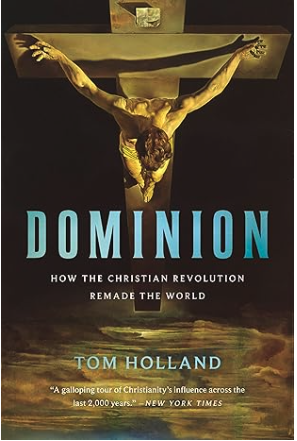Tom Holland on Christianity
Historian Tom Holland discusses Christianity's unprecedented influence on world history, from ancient Rome to modern America. A fascinating conversation about religion's enduring impact and future relevance.

I think what is radical about what Christians come to believe is not the fact that a man can become a god. Because for most people in the Mediterranean that is a given. What is radical is that the man Christians believe was divine was someone who had ended up suffering the worst fate imaginable—death by crucifixion—which, in the opinion of the Romans, was the fate visited on a slave.
The reason that Jesus suffers that fate is that he is part of a conquered people. He’s not even from Judea. He’s from Galilee. Galilee is not properly under the rule of the Romans. It’s franchised out to a client king. He is the lowest of the low. Even the Judeans look down on him.
The fact that such a person could conceivably be raised up by citizens of the Roman Empire as someone greater than Caesar himself, greater than Augustus, is a completely shocking maneuver. Judeans, Greeks, Romans—it’s shocking to them all.
The radical message of the crucifixion is that, in Christ’s own words, the last shall be first, and the first shall be last.
A long quote from an interview by Bari Weiss at Honestly with Tom Holland, the author of Dominion: How the Christian Revolution Remade the World. I found the conversation to be very interesting, covering the rise of Christianity, the letters from Paul, and touching on the influence of Christianity on the various revolutions, including the founding of the United States or the 1960s, and modern movements.
I queued up his lengthy book, Dominion, on Audible to dive into. He also co-hosts one of the most popular podcasts available, The Rest is History, which tackles an assortment of stories from history.
Amazon.ca : Dominion: How the Christian Revolution Remade the World



Member discussion